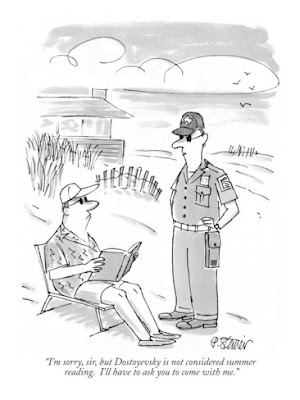Long time no blog.
As the title of this post indicates, I was
planning to write something about the gruesome end-of-prépa exams which kept me, as well as about 3 000 other
students, busy these last few months.
My first draft looked like this:
“Like every other student in Europe, during
these last two months I was slowly crushed by the burden of revisions. For
what? For just about the biggest deal there can be in the world of exams. After
three years of prépa, I spent a week
in a tower block along with around 3 000 hyped-up students taking the
infamous concours. This was my last
shot at getting in to the ENS, simply the best university there is in France –
even though it is considered the best because students actually get paid to
attend. Three years leading a near-to-cloistered life, with diminished leisure
time, extreme stress and never-ending work. Three years of intense
concentration and preparation in view of the concours. As one of my classmates said, “Tout ça pour ça”.”
I think you can tell how bitter I was. Indeed,
I “failed” again. Let’s be clear, the concours
only takes 30 students per section, so most us, even the best, fail. However,
to make you feel a bit better, the jury provides you with an honorific title, “sous-admissible”. Kind of, “Well done
but not there yet.”
Anyhow, I just needed a little time to take it
all in. In addition to the ENS, I had sent an application to other good
schools, and it turns out what I might be doing in September may be far better
– and far more suited to my career plans – than the ENS, as well as less
elitist.
But the aim of this post was not to ramble
about my scholarly achievements (or lack of). Between my first draft and this
final version, some things are unchanged.
Yes, the French school system is excellent. We have
all studied Latin and Philosophy, whatever our curriculum, and have all been
provided with solid general knowledge.
But it pits all of us against each other. These
three years have been a battle of egos, with tears, snide comments and
backstabbing galore. Even now I am out of that system, oh the dreaded
meet-the-old-students evenings where everyone has to prove that they have done
better than their neighbour! I was speaking to a friend recently, who refused to
go the most prestigious prépa of all,
Henri IV, because she felt she was emotionally incapable of dealing with the atmosphere.
Said friend is now studying something she loves, and has just spent a year
abroad. But she still, like all of us, has to submit to the interrogatoire: whenever we are with
former classmates, there is an unspoken competition between us. Where did you
go after your bac? – and not what
did you study.
So that’s it. The French system is
pressure-inducing, but we are all making it worse. Don’t get me started on
people publishing their exam results on Facebook so that everyone can see… then
people assume you didn’t do well, when actually you are not much of a bragger.
It is a race to the top, to the best lycée,
to the best prépa, to the best school
and to the best job. A load of old stereotypes, but with the multiplication of
management and business schools, extreme competition and peer pressure is seen
as one of the usual aspects of education.
This rant won’t change anything. I just think
that France has a problem in its schooling system. I wish that we could all
have a more balanced approach to studying, according to which what we are studying is more important
than where. That people would ask
questions such as, Do you enjoy what you are studying? Do you feel you are
learning interesting things? Are your lessons making you feel like you are
getting closer to your dream job?
I know this sounds idealistic. I am not wishing
to “bring the magic back in learning”, which sounds ridiculous. There is no
magic. It is hard work. But when done properly, and humanly, it pays. Maybe not
in the way you planned. Trust me, I have known deception BIG TIME despite being
a good student. But in the end, it always pays. Whatever school you have been
to.








